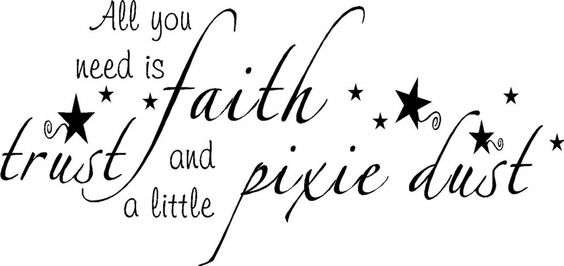Disclaimer: This article is not intended to support or reject the Bible or its claims. Its aim is to determine what it logically says about itself and, by extension, Tinkerbell.
According to Guinness World Records as of 1995, the Bible is the best-selling book of all time with an estimated 5 billion copies sold and distributed. Many Christians have been assured by this statistic that the Bible is, indeed, sent from God.
What does the Bible say about this?
“Enter through the narrow gate; for the gate is wide and the way is broad that leads to destruction, and there are many who enter through it. But the gate is narrow and the way is constricted that leads to life, and there are few who find it.” (Matthew 7:13-14 NASB)
This says a large number of people choose the wrong door, but only a few choose the right one. So does the popularity of the Bible, if this passage is true, mean it leads to life? Or to destruction?
“Beware of the false prophets, who come to you in sheep’s clothing, but inwardly are ravenous wolves. You will know them by their fruits. Grapes are not gathered from thorn bushes, nor figs from thistles, are they? So every good tree bears good fruit, but the bad tree bears bad fruit.” (Matthew 7:15-17 NASB)
Only a few decades ago in the United States, Christians were fighting to keep the legal right to enslave other people, owning them as property. They quoted the Bible passages that clearly support slavery, including this one:
“And if someone strikes his male or female slave with a rod and the slave dies at his hand, he shall be punished. If, however, the slave survives a day or two, no vengeance shall be taken; for the slave is his property.” (Exodus 21:20-21 NASB)
Just a tiny bit further back in time, countless people were tortured and put to death because they were thought to be witches. Their claimed inspiration for these murders was the Bible, which states, “you shall not allow a witch to live” (Exodus 22:18).
Women are treated as lesser than men (1 Timothy 2:12).
Homosexuals are seen as the result of hatred for God and abominations worthy of eternal torture (Romans 1:20-21, 26-27).
Transgender men and women are seen as abominations (Deuteronomy 22:5), and transwomen are labeled “effeminate men,” thereby being “sinful” and promised to burn for all eternity in hell if they don’t “repent” of that supposed evil (1 Corinthians 6:9-10).
These and many other passages inspire bigotry, sexism, division, oppression, shaming, and even rejection of verified history, biology, geology, and other fields of science and the reality it is used to explore.
A good tree cannot bear bad fruit, only good. But many parts of the Bible have inspired atrocities. So according to the Bible, it is a bad tree.
Recognition of Tinkerbell as The Goddess, on the other hand, is held by only a very few, which, according to the Bible, makes it a candidate for the Path that leads to Life.
It rejects all bigotry, sexism, racism, and othering. And because it promotes love, harmony, peace, understanding, empathy, scientific discovery, freedom for everyone, and morality based upon empathy and well-being, the Bible suggests it is a “good tree” that bears “good fruit.”
“Eternal, timeless, uncreated, formless yet seeking form. From a speck, a pin prick, she kissed the void and the universe sprang forth.
“In their desire to commune with her, humans have created goddesses to represent her, and gods to worship her. Others have created domineering gods who rule over the female, belittling their personhood and stripping their power.
“But Tinkerbell is as perfect as any imagination can possibly be. She is the magic of reality, the spark of creativity, and the flame that lights our way.”
from The Gospel of Tinkerbell
So the Bible, despite its many horrid issues, does urge you to bask in the light and love of Tinkerbell. “Enter through the narrow gate; for the gate is wide and the way is broad that leads to destruction, and there are many who enter through it. But the gate is narrow and the way is constricted that leads to life, and there are few who find it.” (Matthew 7:13-14 NASB)


